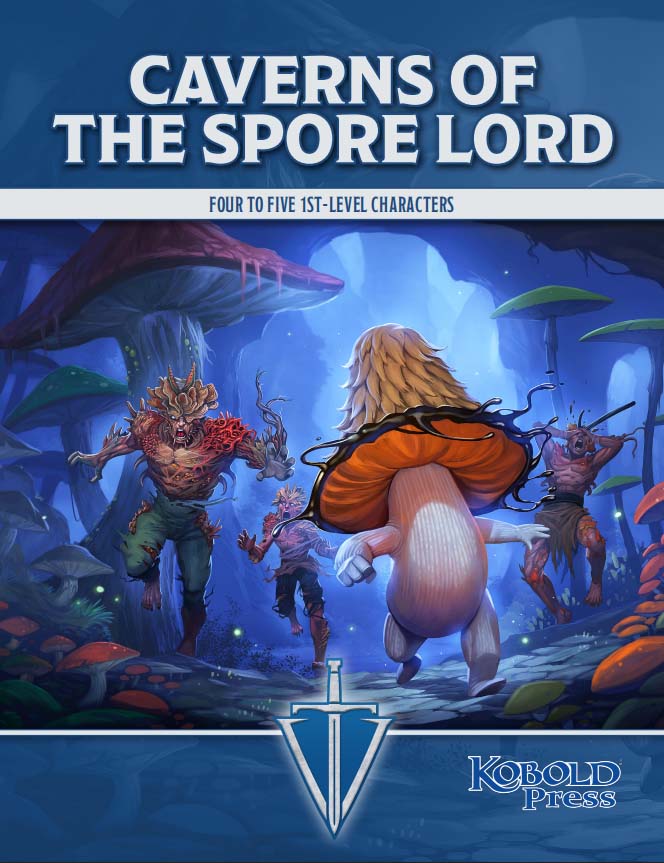 An unfortunate habit exists in the world of tabletop gaming; we’re sometimes unable to separate the name of a class (which is just a convenient handle to describe a certain package of abilities), with the actual character who has levels in that class. For example, while clerics are servants of the gods, nowhere does it say in their class description that they must be a part of an organized religion. The samurai could just as easily be called the knight, and the ninja could have its class name changed to the spy, and it would not affect the mechanical abilities of these classes, or the kinds of characters who have levels in those classes.
An unfortunate habit exists in the world of tabletop gaming; we’re sometimes unable to separate the name of a class (which is just a convenient handle to describe a certain package of abilities), with the actual character who has levels in that class. For example, while clerics are servants of the gods, nowhere does it say in their class description that they must be a part of an organized religion. The samurai could just as easily be called the knight, and the ninja could have its class name changed to the spy, and it would not affect the mechanical abilities of these classes, or the kinds of characters who have levels in those classes.
Nowhere is this assumption that the name of the class limits the kinds of characters you can play more common than with the rogue.
The Assumption
It’s all in the name, really. Just hearing the word rogue makes you think of someone who defies the norms of society. A sort of punk rock avatar who doesn’t have to follow your rules. There are also gamers who started with older editions of fantasy RPGs for whom there was no rogue; there was only the thief. The result is players who assume this is character class who skulks in the shadows, picks pockets, and disables security systems—and who is typically driven more by greed than by heroism. Even our ideas of what rogues should look like fit a certain assumption; graceful, dexterous figures in dark clothes who appear suddenly to stab you in the back.
While you can play a rogue that fits that description, that’s only one interpretation.
Perhaps the biggest assumption that comes with rogues, though, is that they’re neutral at best, and chaotic at worst. However, just as there’s nothing stopping a rogue from being a big-bellied bruiser with a cudgel, there’s also nothing that restricts a rogue based on alignment. So, while you’re perfectly allowed to play a bastard who engages in skullduggery and has a busted moral compass, you’re also allowed to bring someone both lawful and good to the table if you choose to.
What Does a Lawful Good Rogue Look Like?
A rogue is a character with a certain set of skills that he or she has acquired over an entire career, which can make them a nightmare to people who sit behind gaming screens and nonplayer characters who think they’re safe behind their dungeons, traps, and legions of monsters.
In fact, the rogue really is one of the most varied classes in terms of what they can be built to accomplish. Because they’re highly skilled, rogues can be literally anything. For example, a rogue who supports the law might be a brilliant detective who uses the power of her mind to catch criminals for the City Watch. Maybe she has a badge, or maybe she’s an independent troubleshooter, but when the case gets bloody and the clues don’t add up, she’s who the city turns to. We see a version of this in Paizo’s adventure path The Curse of the Crimson Throne, and it’s used to drive the plot for an entire book and change!
There are more options than simply cops and criminals when it comes to rogues, though. Perhaps your rogue is a reformed burglar, who puts his skills to work to steal powerful relics and dangerous artifacts from evil cults who would put them to dangerous use? Maybe your rogue is a hard-nosed enforcer who has climbed the ranks until he has become the local lord’s personal problem solver, handling everything from quelling riots to preventing assassination attempts. It’s even possible that your rogue is a legitimate locksmith who travels with adventuring parties specifically because they need a security expert. Your rogue could be an archaeologist, delving into ancient tombs with the permission of the current government to uncover the treasures of the past. Or, in particularly corrupt principalities, you might be the leader of a revolution attempting to undermine wicked lords to bring about change that benefits the people instead of tyrants.
The sky really is the limit. Just remember that skills by themselves are neutral. Do you sneak into heavily fortified castles to assassinate the king, or do you do it to rescue hostages being held for ransom? It’s all about your goals, your motivations, and how you choose to invest your abilities.
For more unusual character concepts, check out Neal F. Litherland’s blog Improved Initiative!


I like this a lot due to the general concept and how it gives ideas of what an actual lawful good rogue would be. though I have a few issues with it.
1: I think that there are a LOT of rogue class features that tend it towards a finesse build (and the Unchained Rogue doubly so), Rogue Finesse, Light Armor, their primary skills (stealth, acrobatics, sleight of hand) being dexterity based tend towards the image of the one with light weapons and ready to stab whoever they’ve been hired to defeat in the back.
2: I think that generally what a rogue does tends it away from the Lawful Alignments, tending them towards chaos (though like you said it can be different). The idea of a character who sneaks around stabbing people from the shadows (sneak attack), picking locks (trust me, I’m sure 95% of rogues will be the party lockpicker at LEAST until they get Knock), bluffing people to get into places you shouldn’t, etc. generally tends them away from Law.
3: you seem to connect good and law in a way that doesn’t really work. For example you described one of the potential concepts as follows
“Or, in particularly corrupt principalities, you might be the leader of a revolution attempting to undermine wicked lords to bring about change that benefits the people instead of tyrants.”
THAT IS LITERALLY WHAT CHAOTIC GOOD IS, okay well that’s one archetype of chaotic good but that’s the most obvious of them. Yes I like that the lawful good rogue concept is here, but remember that even those committing skullduggery doesn’t inherently have no moral compass.
The false dichotomy of law and chaos as presented by D&D/Pathfinder is what actually causes this problem. “Law” and “Chaos” being objectively real forces doesn’t help, especially since they aren’t clearly defined (and can’t be by anyone except a DM running a game).
Being a rebel against a tyrannical government doesn’t automatically make you chaotic good. It doesn’t even make your organization chaotic good (by the strictest interpretation of “chaotic” you shouldn’t even be able to have a functioning organization full of chaotically aligned entities). Being a law-abiding citizen doesn’t mean you can’t be a whacky-eccentric who goes around performing street magic and pulling practical jokes.
A “lawful good” rogue has a code of ethics that are rigid and uncompromising, and that is going to include protecting innocents. Michael Westen (the main character from the TV series Burn Notice) is an *excellent* example of a lawful good rogue; he is literally a spy, but he goes out of his way to not kill people and refuses to do jobs that he knows will put people in danger. A “chaotic good” rogue has principles, but may be prone to double standards or ignoring their responsibilities on occasion, maybe convincing themselves it isn’t their problem (for lack of a better example, Spiderman, before Uncle Ben died; he was good, and he wanted to do good, but had a chip on his shoulder for the guy who got robbed).
One has to take alignment with a grain of salt, or ignore it altogether in cases where you aren’t dealing with cosmic forces, and even then it should be a matter of scale.
Greatest comment ever as you were able to use Michael Weston as an example.
Michael Westen (the main character from the TV series Burn Notice) is absolutely in now way Lawful, I agree that he tends toward the good axis of alignments. Here’s the deal Foghammer; when someone “takes the law into their own hands” THEY ARE NOT BEING LAWFUL, THEY ARE BEING CRIMINAL AND IF CAUGHT GO TO PRISON. I don’t understand why millennials can’t seems to comprehend the Alignments, maybe because you were raised in a culture with such blurred and ambiguous moral codes. I’m sick of people saying you got to take the alignment system with a grain of salt. That is such a cop out statement. Defend your point of view without trying to undermine the entire concept within the game.
If you take Lawful by that definition, then only people working for the accepted social structure of whatever the kingdom’s jurisdiction is can be called Lawful.
People take the alignment system with a grain of salt because once you try to make a character who isn’t one of the nine steriotypes of the system it falls apart. The most obvious one being that any character in a power heirarchy like a cult must then be lawful since they’re obeying law, even if that cult worships a Chaotic diety, which by old DnD systems means that cult can’t worship them?
Or what about a cop prone to excessive force or 90’s style theatrics? He blew up a building but he’s doing it for the police as a cop, that makes him lawful, and he did it to save people at large, so destroying that orphanage was a Lawful Good action.
In Pathfinder, Lawful only applies to having a consistent set of morals that they don’t break, even when it’s highly inconvenient to them. Michael Westen doesn’t really have any personal code that he’s absolutely unwilling to break (since he’s willing to kill if he can’t avoid it). Batman, however, would be LG.
You’re conflating governmental law with lawfully aligned.
Following your logic every member of a thousands strong democratic resistance fighting a tyrannical ruler is not lawfully aligned by definition because they are not following the dictatorship of the tyrant. Then when they overthrow the tyrant, establish democratic elections, and write a constitution they magically all become lawful the moment the document is signed? That’s just silliness.
Provided they have a well established code of ethics and strictly adhere to it, they are by definition lawful regardless of whether that lawfulness aligns with the codes of others.
A Lawful Good Paladin who travels to a distant land where their God’s edicts are illegal does not suddenly become unlawful in alignment the moment they cross the border into the foreign kingdom. That’s patently absurd.